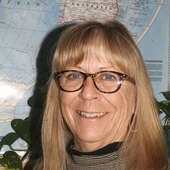- Research tips and McCook Brick Company- solid as a brick (12/16/24)
- Big Give appreciation and some railroad characters (11/15/24)
- George Randel becomes a landowner, gets married, and takes in a Buffalo Bill show (9/20/24)
- The memoirs of George F. Randel, early settler of Red Willow County (9/12/24)
- Vietnam War Memorial honors Nebraskans who served (6/13/24)
- McCook business promotions - just prior to 1893 stock market crash (5/30/24)
- Shall we dance? Meet you at the Gayway (12/8/23)
Tips in researching your family history
Friday, November 27, 2015
Thanksgiving was a huge event on my mother's side of our family. We'd all gather together for dinner at Grandma Floras' house in Dalton, Nebraska. Looking at the house today, I have no idea how we all fit in there, but we did!
Because there were essentially two sets of cousins: one older, one younger, we had cousins whose children were the same age as some of the younger cousins. No one said, this is your first cousin twice removed...we were just cousins, period. It wasn't confusing to we younger ones because it didn't matter but in genealogical terms, it does!
If you need to reference a direct relationship and you don't know what it truly is, you can go to: www.searchforancestors.com. Look for Cousin Calculator on their site. To answer my question: Grandchild (Which I was) and Great Grandchild (My cousins' children) of a common relative are first cousins, once removed. My children and my cousins' children are second cousins.
Ancestral Findings (www.ancestralfindings.com) has a recommended set of books that they say every genealogist needs: Forensic Genealogy, by Colleen Fitzpatrick, Ph.D.; Black's Law Dictionary; Genealogical Writing in the 21st Century, by Henry Bainbridge Hoff; Professional Genealogy by Elizabeth Shown Mills.
The Black's Law Dictionary is on that list because it has legal terms used in the English language since medieval times. (I doubt that it is as much of a snorer as it sounds.) What do you use it for? Well, if you have ever tried to decipher an old will or court document, it will come in mighty handy! Archaic language sometimes leads you down the wrong path unless you know the intended meaning.
Forensic Genealogy tends to pique my interest also. The recommendation is qualified with facts concerning examining clues in a photo; DNA mysteries; document interpretation. The article says that with this book "you will uncover tons of interesting new information about your family history with this as a reference book in your library." I don't know how many more "tons" of information my brain can hold (or my house) but I figure it's worth a try.
The other two: Genealogical Writing and Professional Genealogy, I'm on the fence about ordering. Both of these are on the list because of what they provide in terms of writing a family history book for publishing and accurate/thorough research that leaves you with "professional" results. These will probably be nice to add to our SWNGS Library.
Finally, a few more Google search tips to help you clarify your results. To search a date range, say an ancestor birthday that you are not clear on do this: "George Davison" 1789..1793. That will give you results for the years 1789, 1790, 1791, 1792 and 1793. If you want to exclude a year: "George Davison" 1789..1793-1740.
To find terms near each other, which means we want results in which George Davison and 1789 are in the same results but unrelated to each other you want Google to only give you answers that show George and 1789 close enough to mean something to your research. Do it like this: "George Davison" AROUND(10) 1789. Results will only include the words George Davison within 10 words of the date 1789. When you think about that, it opens a plethora of things you can use it for, not just matching dates, but also relative names such as husband and wife: "George Davison" AROUND(10) "Racheal Davison."
Southwest Nebraska Genealogy Society's next meeting will be Dec. 5 at 1 p.m., 110 West C Street, Suite M-3. Our library will be open for research at that time plus we will be having a bit of Christmas cheer also. The public is always welcome!

